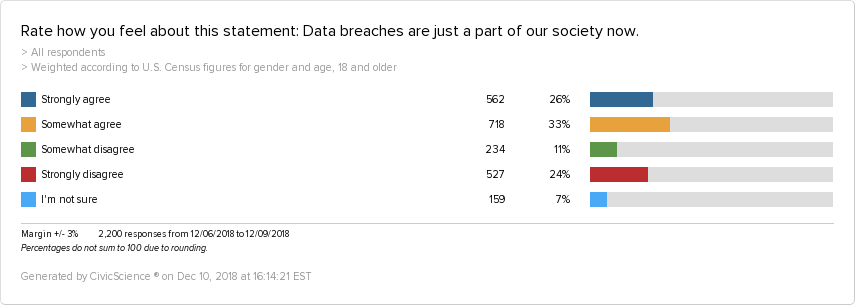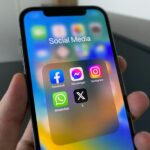In 2018, there have been over 600 data breaches in the United States. Each time, millions of records are exposed, jeopardizing the private information of unsuspecting individuals across the country. CivicScience asked over 1,200 U.S. adults about their opinion on data security and the future of data breaches in the United States. As the data reveals, over half of respondents feel that their information online is somewhat safe. However, the second largest group–41% of U.S. adults–feel their information is not safe at all.
Given the general lack of trust, it seems fitting that 73% of U.S. adults are not at all surprised when breaches happen. This sentiment overwhelmingly outweighs the minority of individuals who are somewhat or very surprised to hear of a breach, supporting the notion in the graph above, that personal information online may not be very well protected to begin with.
For what it’s worth, the pessimism–however justified it might be–does not stop there. On the whole, U.S. adults are largely in consensus that data breaches are just part of our society now. With 26% of respondents strongly agreeing and 33% somewhat agreeing, that means over half of U.S. adults have come to accept the idea that private information becoming public is now woven into the fabric of our 21st-century existence.
The future outlook is equally as bleak, with 77% of U.S. adults believing that breaches will only become more frequent, five years from now. It’s a sobering statistic in the digital age and one that speaks to a growing sense of unwilling acceptance regarding the amount of power that big corporations have over individuals.
In the wake of this year’s data breaches, these statistics offer poignant insight into national morale in the digital space. Given the amount of information stored and shared online, the lack of trust in digital security, combined with the lack of hope for improvement in the future does pose a difficult question: how will we navigate an online world where everything private has the potential to become public, without our consent? Food for thought for the new year.












